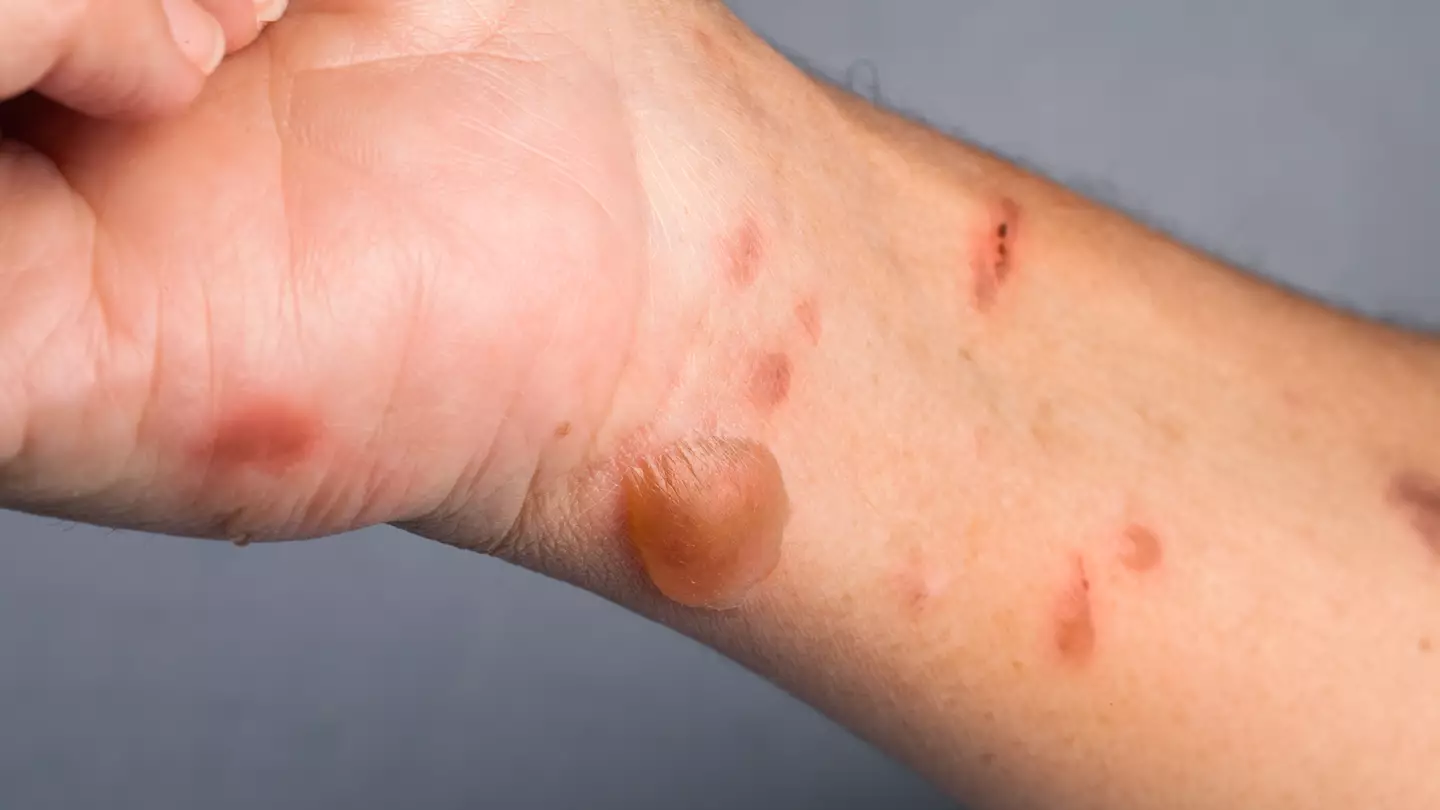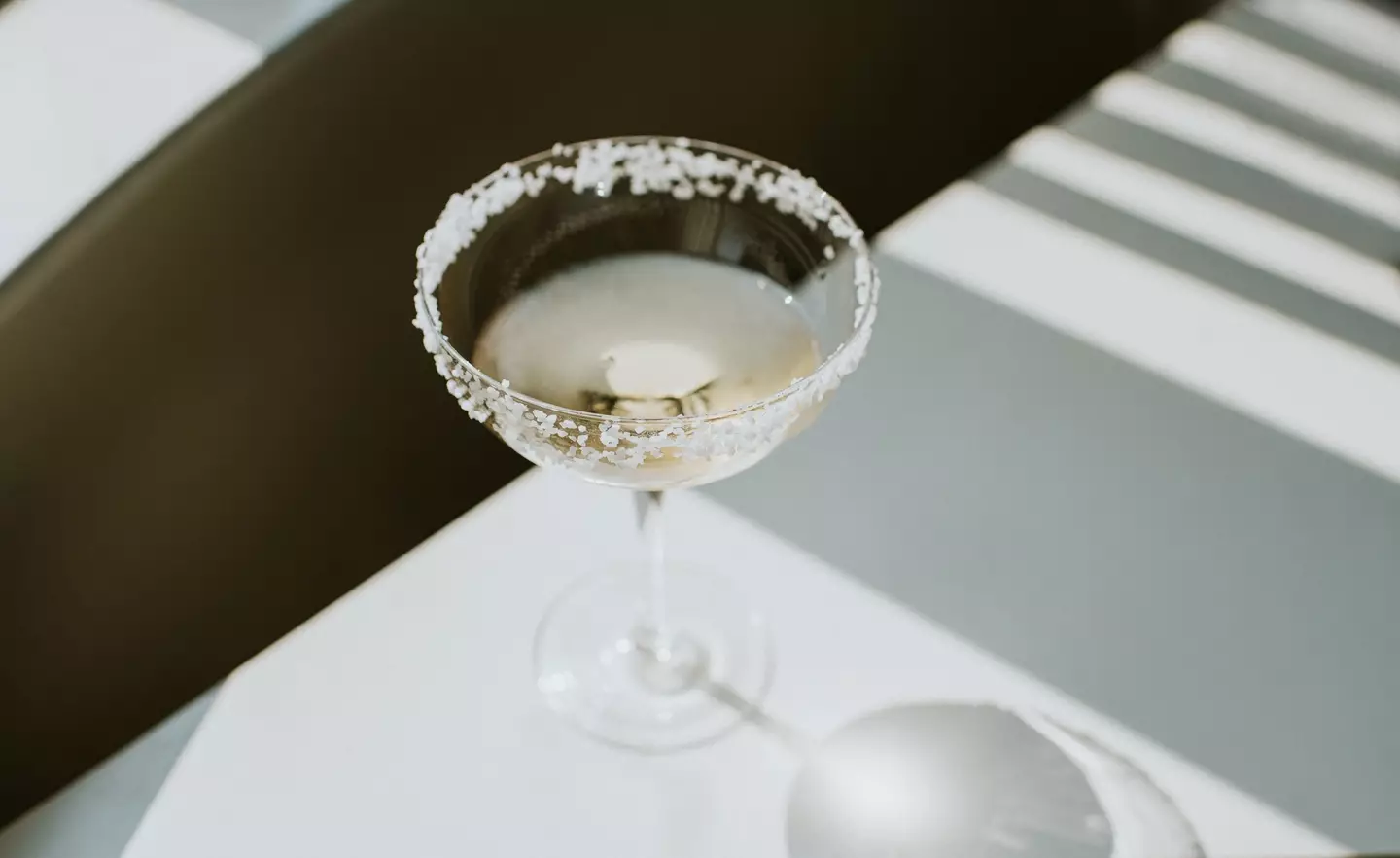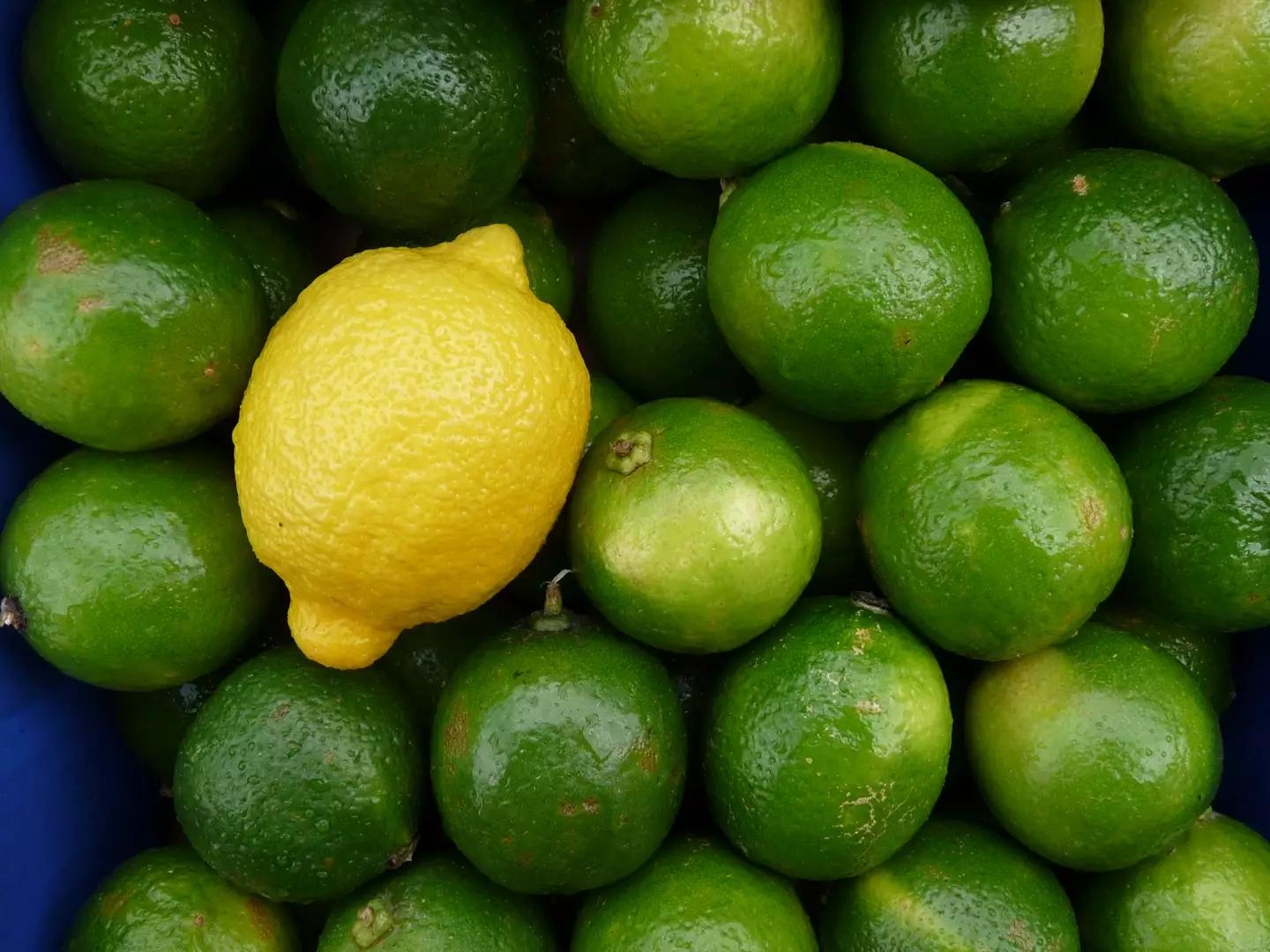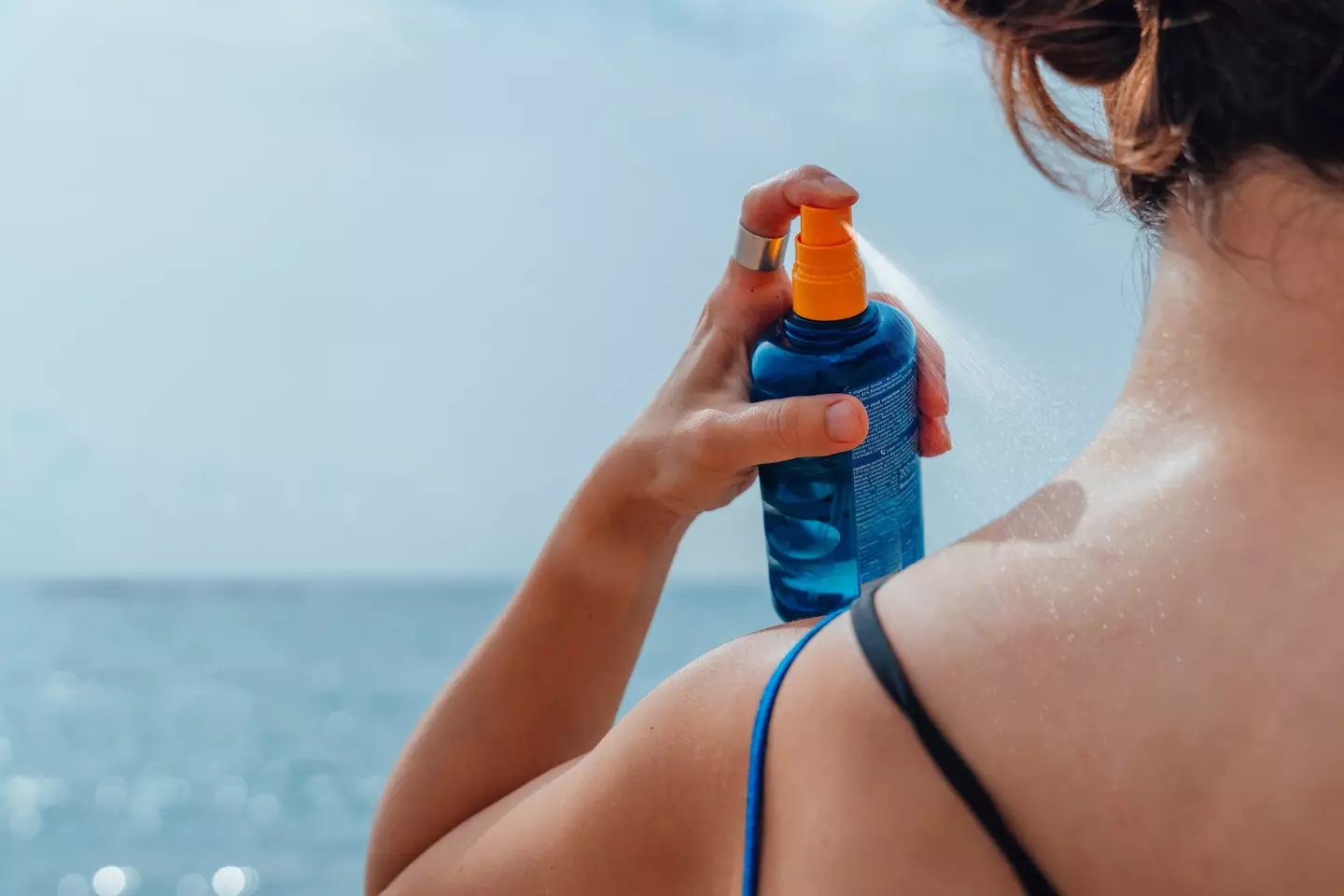
Summer is prime time for cracking open the bevs while getting some sun on your back, but medics are warning drink sippers about a little-known condition nicknamed 'margarita burn' that you really want to avoid.
Turns out that knocking back those cocktails this summer comes with more of a risk than just a sore head, with board-certified dermatologist Dr. David Kim telling TODAY during a recent appearance that something known as margarita burn can wreak havoc on your skin, and 'it’s more common than you think'.
Now, medics are issuing a fresh warning ahead of peak summer hol season over the signs of the painful condition and how best to treat it if you do end up spotting it on yourself.
The eye-wincing ailments actual name is phytophotodermatitis, and here's everything you need to know before you start pouring those margs this summer.
Advert

What is margarita burn?
Medically-speaking, margarita burn is essentially an extreme sunburn caused by chemicals in certain plants and fruits - known as furocoumarins - coming into contact with your skin before then being exposed to the UV rays from the sun.
Furocoumarins make the skin more sensitive to the sun, and therefore exasperate the effects of sunburn.
One of the most common culprits for causing the nasty skin reaction are citrus fruits such as limes and lemons as well as celery, parsley, figs and carrots.
So, in theory, trying your hand at concocting any drink - not just margs - containing these can cause margarita burn.
“I commonly see phytophotodermatitis when somebody has been barbecuing on a sunny afternoon and having drinks with limes in them, like margaritas or beers with a lime squeezed in,” Dr. Piliang told Cleveland Clinic.
“Anything where they’re cutting and squeezing limes and splashing the juice on themselves and then enjoying the sunshine.”

Who is most at risk of margarita burn?
Anyone who splashes juice from the at-risk foods, such as lemons and limes, and then goes and sits in the sun can develop the condition, but skin tone does have a part to play in the likelihood of it happening.
Those with fair complexions tend to be more sensitive to the sun in general, meaning they are at higher risk of developing margarita burn.
Meanwhile, those who frequently work with citrus fruits outside, such as bartenders, are also more at risk.
How to tell if you have margarita burn
Margarita burn can be tricky to spot given the fact it can look similar to other skin rashes caused by the sun or heat, but there are things to look out for so that you can treat it as soon as possible.
According to Cleveland Clinic, margarita burn can appear on your hands, lips or face and will usually present as streaks, splotches or in some cases handprints. The reaction could also make the skin look red or blistered and cause it to swell.
The condition normally develops over the course of 24 to 48 hours after sun exposure and it'll generally feel extremely itchy and irritated.
The severity of margarita burn depends on how much exposure you've had to both the sun and the chemicals inside the fruit or plant.

How do you treat margarita burn?
If you have a super mild case, the chances are you might not even notice it in the first place. However, if you do suspect you have margarita burn, it's important you get yourself down to a pharmacy for some over-the-counter cream to treat it.
In more severe cases where it doesn't clear up after a few days, medics say you should visit a doctor who can provide stronger prescription creams.
Experts also warn that you should never pop any blisters that form and to make sure you keep your skin out of the sun while it's healing.
“If you get a rash, you can use steroid creams to calm down the inflammation, and you can use brightening serums with kojic acid and arbutin to prevent hyperpigmentation,” Dr Kim told TODAY.
How can you prevent margarita burn?
The good news is that sipping on margs all day doesn't have to cost you your skin health.
One of the easiest ways to avoid margarita burn is to keep on top of your protection and make sure you're regularly applying a good suncream to protect yourself.
Meanwhile, if you find yourself on bar duties for your mates, make sure you wash your hands with soap and water after handling anything containing furocoumarins.
Those who are frequently whipping up drinks are also advised to wear gloves to avoid any juices splashing onto their skin that could cause the condition.
Topics: Food and Drink, Health